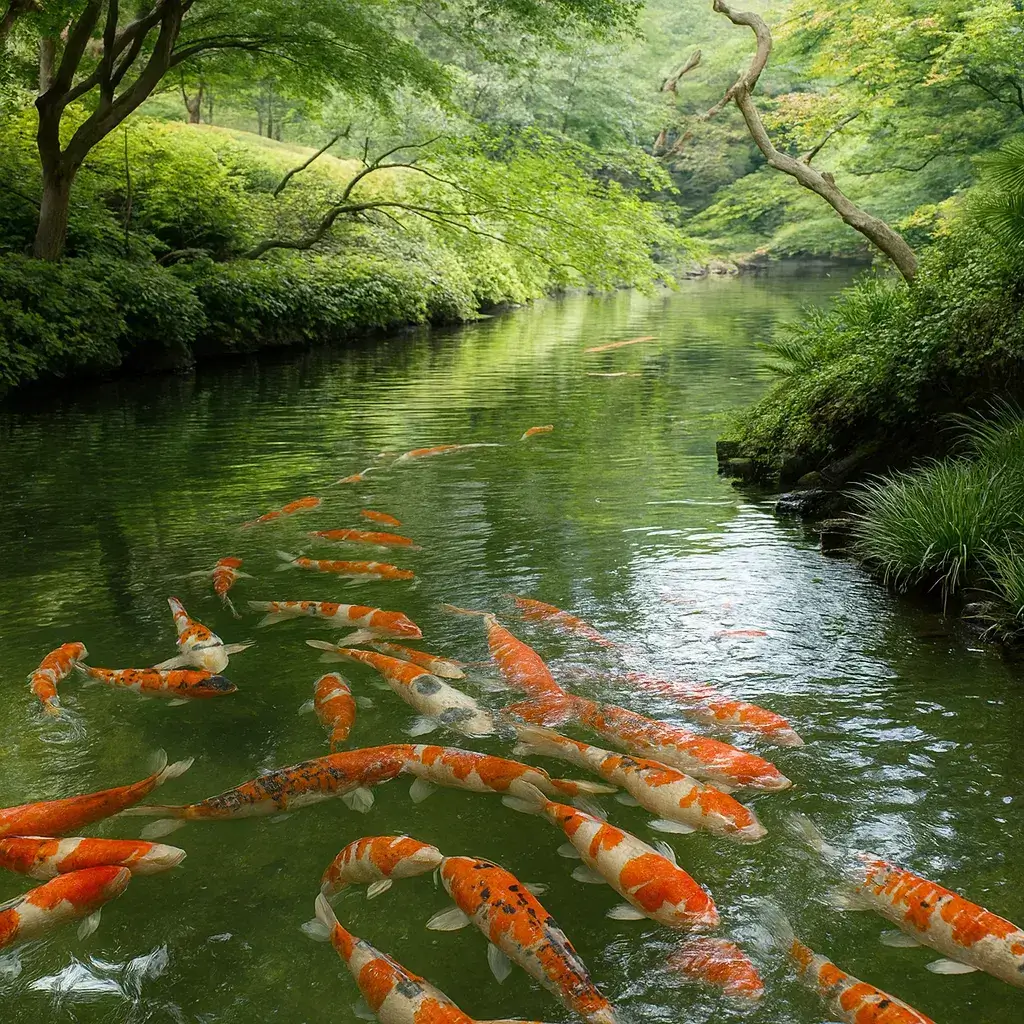There’s a saying: the fish doesn’t notice the water it swims in.
That’s what it’s like growing up in trauma. You don’t notice the water because it surrounds you. It’s the only world you know. You adapt. You breathe it in. You think it’s normal.
For many of us, trauma wasn’t a single dramatic event. It wasn’t just abuse or disaster. It was the atmosphere of the house — the silences, the tone, the rules no one said out loud but everyone followed. It was the water.
And when you grow up inside that water, you don’t question it. You assume every family is like yours. Only later — when you’re anxious, burned out, ashamed, repeating the same patterns — do you start to wonder, What’s wrong with me?
The answer is: nothing was “wrong” with you. It was the water.
Living Inside the Water
As a child, you don’t have a frame of reference. If your father disappeared into silence for days, you assumed all dads did that. If your mother leaned on you for comfort, you thought that’s just what kids were for. If yelling, stonewalling, or criticism filled the air, you learned to breathe it as naturally as oxygen.
That’s the trap of childhood complex trauma: it hides in plain sight because you grew up inside it. You didn’t recognize it as trauma. You recognized it as “life.”
The Many Textures of Water
The water of childhood trauma isn’t the same for everyone. It takes different forms, but each leaves its own imprint.
Swampy Water
A home thick with unspoken tension. Problems never named, but always felt. As a child you learned to read moods without words, to anticipate trouble before it surfaced.
Adult outcome: constant low-grade anxiety, fear of conflict, trouble ever fully relaxing.
Polluted Water
Criticism, sarcasm, or subtle shaming. “Why can’t you be more like your brother?” “You’ll never get it right.” As a child, you swallowed these words whole.
Adult outcome: an inner critic that never lets up. No matter how much you achieve, you feel “not good enough.”
Choppy Water
Emotional unpredictability. Some days warm, other days explosive. You never knew which version of a parent would show up, so you stayed hyper-alert.
Adult outcome: anxiety, mistrust of calm, gravitation toward volatility in relationships.
Frozen Water
Emotional coldness. No hugs, no warmth, no attunement. As a child, you stopped reaching out. You told yourself you didn’t need anyone.
Adult outcome: emotional distance feels safe, intimacy feels threatening. Vulnerability feels impossible.
Flooded Water
Boundaries collapsed. A parent leaned on you for emotional support or exposed you to things you weren’t ready for. Maybe you were praised for being “mature for your age.” In truth, you were drowning in responsibility.
Adult outcome: chronic people-pleasing, exhaustion, confusing love with self-sacrifice.
Toxic Algae Bloom
Addiction in the household. Drinking, drugs, gambling — it colored everything, even if unspoken. Chaos, secrecy, instability became the norm.
Adult outcome: fear of instability paired with a strange attraction to it. Trust feels dangerous. Chaos feels familiar, even when you hate it.
Each of these waters trained you to survive. Stay small. Stay quiet. Stay useful. As a child, those were intelligent adaptations. As an adult, they leave you feeling broken or stuck.
But none of this means you’re flawed at the core. It means you were shaped by the water.
Why Assessment Matters
When you grow up inside these waters, you don’t know they’re toxic. They feel like the natural order of things. That’s why assessment tools can be so powerful.
They’re not about slapping on a label. They’re about giving you mirrors — ways of seeing what was hidden. They help you say, Oh… that wasn’t just me. That was the water I was in.
- A checklist might reveal how many of your “normal” experiences were actually neglect or enmeshment.
- A reflection exercise might show that your “quirks” are really survival strategies.
- A symptom map might connect today’s health struggles to yesterday’s water.
These tools don’t define you. They help you see clearly.
Tools to Recognize Your Water
- Journaling prompt: Write down three things from childhood you always assumed were normal. Then ask: were they actually safe? supportive? healthy?
- Assessment exercise: Try a trauma questionnaire or checklist (like the ACEs). Not to label yourself, but to measure the water you grew up in.
- Pause practice: Next time you hear yourself say, “That’s just how I am,” stop. Ask: is this me, or is this the water I grew up swimming in?
Stepping Onto Dry Land
The hardest step is naming what you lived through. Saying: the water I grew up in wasn’t normal. It wasn’t safe. It wasn’t my fault.
You can’t change the past. But you can stop carrying it as if it were natural or inevitable.
Once you see the water, you’re no longer trapped in it. That’s when you begin to step onto dry land.


